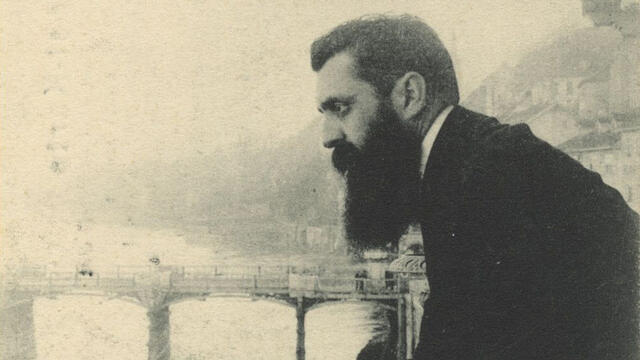Theodor Herzl

Between 1896 and his premature death in 1904, Theodor Herzl became the founding figure, living symbol, and most influential voice of political Zionism: the idea that Europe’s Jews could only solve their political plight through self-determination in a territory of their own. Born into an affluent family in Habsburg Budapest, Herzl moved to Vienna in 1878. After receiving a law degree from the University of Vienna, Herzl pursued a career as a writer, playwright, and journalist. Still a young man, he became the Paris correspondent for Vienna’s leading liberal newspaper, the Neue Freie Presse. In the early 1890s, rising antisemitism in Austrian and French society, made shockingly evident during the Dreyfus Affair, pushed Herzl to conclude that anti-Jewish sentiment was so deeply embedded in European society that Jews could only win rights, safety, and respect by leaving Europe and constituting a society of their own in a territory of their own. With the publication of Der Judenstaat (The Jewish State, 1896), Herzl injected these ideas, previously largely confined to the East European Jewish milieu, into West European and global political life. No less importantly, reasoning that only if Jews demonstratively constituted themselves as a political nation could they demand collective rights from the community of “civilized nations,” Herzl organized a Zionist Congress in Basel in 1897, at which he and the two hundred delegates founded the Zionist Organization. Until his untimely death seven years later, Herzl actively led the work of the organization, worked tirelessly to build public support for the Zionist cause (finding particular success among the immiserated Jews of the Russian Empire), and—with considerably less success—sought to convince any government that would listen to grant Jews a right to mass settlement and autonomy in Ottoman Palestine or, indeed, any other territory. He also wrote the most important Zionist utopia, Altneuland (Old-New Land, 1902).

